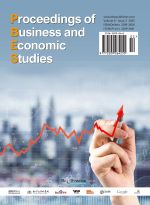Abstract
With the rapid development of the Chinese market economy system, income tax as an economic lever has become more and more prominent in regulating the economy. Since the beginning of the accounting reform, the Ministry of Finance has promulgated the accounting standards for income tax and put forward the corresponding procedures and methods, which is a leap forward in the development process of domestic income tax accounting. The relationship between income tax and accounting, the nature of income tax, and the basic characteristics and the apportionment of income tax accounting are expounded in this paper. Payable tax with impact accounting regulations, deferred with debt regulations, and balance sheet debt with income statement debt regulations are compared given the existing problems in the accounting treatment of domestic income tax, and the choice of applicable treatment methods are discussed. Finally, the accounting treatment of important income tax such as consolidated accounting statements, construction enterprises, tax losses, and discount of income tax liabilities are analyzed, and the treatment methods and corresponding countermeasures are put forward to improve the domestic income tax accounting problems.
References
Ministry of Finance, 2006, Accounting Standards for Business Enterprises No.18 — Income Taxes, Beijing Economic Science Press.
Feng H, 2009, Research on China’s Enterprise Income Tax Accounting, dissertation, Capital University of Economics and Business, 2009.
Li W, 2018, A Brief Discussion on the Basic Characteristics of Tax Accounting. Accounting Learning, (14): 181.
Zhang Y, 2017, Research on Several Issues of Accounting Treatment Methods for Corporate Income Tax. Knowledge Economy, (09): 95–96.
Li Y, 2008, Discussion on Accounting Treatment Methods for Income Tax. Times Trade (Second Half), (10): 135.
Zhong L, 2005, The Connection and Difference Between the Deferred Method and the Liability Method. China Agricultural Accounting, (12): 21.
Zhou Y, Mi Z, Huang Q, et al., 2018, Changes in Income Tax Accounting under New Accounting Standards and Their Impact on Enterprises. Value Engineering, 37(03): 21–23.
Wang Z, 2023, Research on Corporate Income Tax Accounting under China’s Current Accounting Standards. Accounting Learning, (34): 143–145.
Zhao S, 2024, Discussion on Related Issues of Consolidated Financial Statements for Business Combinations under New Accounting Standards. Business Culture, (15): 146–148.
Huang J, 2024, Tax Planning and Tax Risk Prevention Strategies for Construction Enterprises. Investment and Entrepreneurship, 35(15): 91–93.
Yu L, Jiang B, 2022, Discussion on Suggestions for Improving the Reform of Corporate Income Tax. Accounting Communications, (02): 145–149.
Tang Z, Feng S, Zhang Y, 2020, Analysis of Difficult Issues and Handling Techniques in Corporate Income Tax Accounting under the Balance Sheet Liability Method. Commercial Accounting, (21): 64–68.
